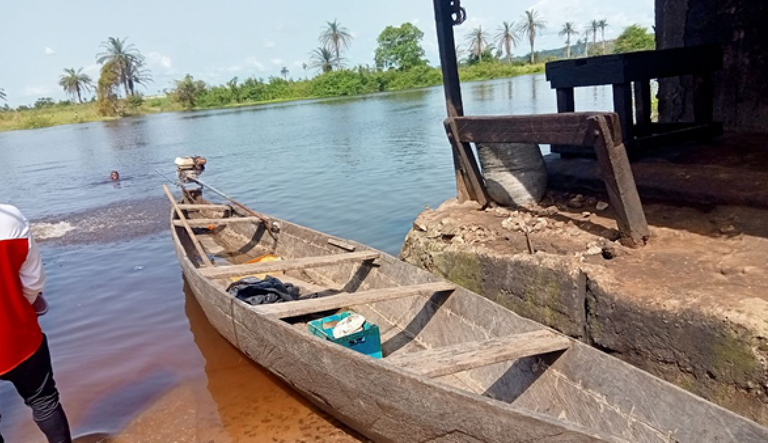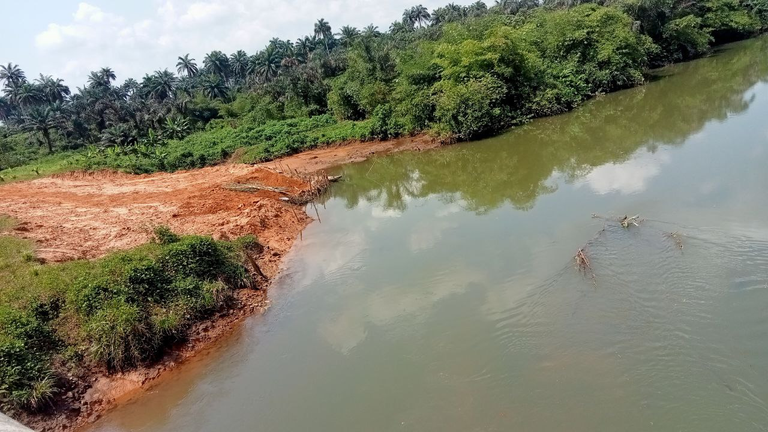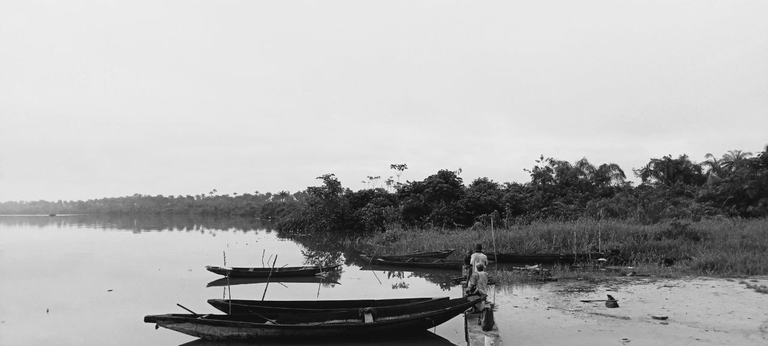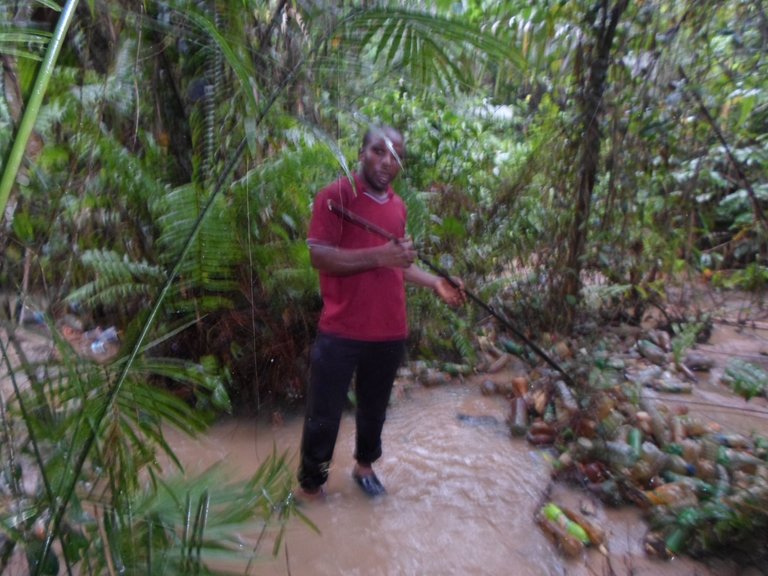KEY FACT: Rising sea levels pose significant threats to Nigerian coastal communities, but proactive adaptation strategies can help build resilience and mitigate risks. By offering practical solutions, this research contributes to the ongoing global discourse on climate adaptation and resilience in vulnerable coastal areas, with specific relevance to the Nigerian context

My image
Recently, I've been challenged to utilize my Hive blogs to push a narrative for professionals to join us here. While we can see Hive as a purely social platform, the recent trends in learning have shown how powerful social media has become even for corporate governance. As a trained Soil and Water conservation engineer, I will be dedicating days to sharing my muse on related issues as they affect my context and fit for national/global discussion. Feel free to share your thoughts too in the comments section.
Rising Sea Level in Nigerian Coastal Communities
Nigeria boasts approximately 853 kilometers (about 530 miles) of coastline along the Atlantic Ocean. This vast coastline and the coastal resources of Nigeria are valuable assets that provide livelihoods, support economic activities, and contribute to the ecological health of the region.
The Nigerian coastal region is rich in diverse natural resources, which play crucial roles in supporting the livelihoods of coastal communities and contributing to the national economy. Some of the key coastal resources in Nigeria include fisheries, mangroves, tourism, oil and gas, port facilities, coastal agriculture, renewable energy, and biodiversity among others.
Despite the richness of the resourceful coastline, the coastal communities are facing a growing threat from rising sea levels, exacerbated by climate change. These communities lined through the expanded Atlantic Ocean are particularly vulnerable to the impacts of coastal erosion, flooding, and saltwater intrusion. Addressing these challenges requires proactive adaptation strategies that prioritize the well-being and resilience of coastal residents.
Understanding the Problem
Rising sea levels pose multifaceted challenges for Nigerian coastal communities. Coastal erosion eats away at shorelines, threatening infrastructure, homes, and livelihoods. Increased flooding events not only damage property but also disrupt daily life and economic activities. Additionally, saltwater intrusion contaminates freshwater sources, affecting agriculture and potable water access. We also have severe mangrove pollution as shown below - the washing of plastics from drainage into the sea and then subsequently into a watershed.
My image - During a research adventure
My Research Adventure
I embarked on research to measure the adaptation Strategies for Nigerian Coastal Communities Facing Rising Sea Levels in Nigeria. The study investigated the individual and community responses to the multifaceted challenges posed by rising sea levels to the vulnerable coastal communities of Nigeria. Utilizing available evidence depicting the acceleration of sea-level rise due to climate change, the research focused on identifying and evaluating the existing adaptation strategies as well as proposing sustainable strategies to safeguard the livelihoods, infrastructure, and ecosystems in these vulnerable areas.

My image
A comprehensive mixed-methods approach was adopted to capture data for this study including remote sensing data, field surveys, community interviews, and expert consultations to assess the current vulnerabilities and impacts of sea-level rise on Nigerian coastal regions. It offered a detailed analysis of the changes in anthropogenic activities and reactions of environmental components as a result of changing climate dynamics at the coastal communities. The research further presented a range of unique and indigenous adaptive measures defined and utilized by the affected coastal communities to cure the effect of the sea-level rise.
Challenges and Opportunities
While adaptation strategies offer pathways to resilience, they are not without challenges. Limited financial resources, inadequate infrastructure, and governance gaps can hinder implementation efforts. Moreover, addressing the root causes of climate change, including reducing greenhouse gas emissions, remains a global challenge.
However, there are also opportunities for innovation and collaboration. Leveraging local knowledge and traditional practices, harnessing technology for monitoring and early warning, and fostering partnerships between government, civil society, and the private sector can enhance the effectiveness of adaptation efforts.
Suggested Adaptation Strategies
These strategies include wetland restoration and protection, and coastal engineering solutions, among others. This study underscores the importance of community involvement and collaboration with the government in implementing coastal zoning regulations and government policy recommendations to mitigate the adverse effects of sea-level rise.

My image
Rising sea levels pose significant threats to Nigerian coastal communities, but proactive adaptation strategies can help build resilience and mitigate risks. By investing in infrastructure, promoting sustainable resource management, empowering communities, and strengthening governance, Nigeria can navigate the challenges of climate change and safeguard the well-being of its coastal residents for generations to come. Moreover, sustainable management practices and effective conservation efforts are necessary to ensure their long-term viability and resilience in the face of environmental challenges and human activities.
By offering practical solutions, this research contributes to the ongoing global discourse on climate adaptation and resilience in vulnerable coastal areas, with specific relevance to the Nigerian context.
What are your thoughts?

If you found the article interesting or helpful, please hit the upvote button, and share for visibility to other hive friends to see. More importantly, drop a comment below. Thank you!
This post was created via INLEO, What is INLEO?
INLEO's mission is to build a sustainable creator economy that is centered around digital ownership, tokenization, and communities. It's Built on Hive, with linkages to BSC, ETH, and Polygon blockchains. The flagship application: Inleo.io allows users and creators to engage & share micro and long-form content on the Hive blockchain while earning cryptocurrency rewards.
Let's Connect
Hive: inleo.io/profile/uyobong/blog
Twitter: https://twitter.com/Uyobong3
Discord: uyobong#5966
Posted Using InLeo Alpha

Wow that is a bad thing happening all around! Hopefully we change and we can fix it.
The fact is that Nigeria is not good at being proactive not to mention sustainable management of significant threats occasion by the rising sea levels. Any ministry created for that ends up becoming a siphoning avenue at the expense of affected Nigerians. Thanks for sharing.
This research is currently problem solving, especially in this rainy season we are moving in.
Nice one sir